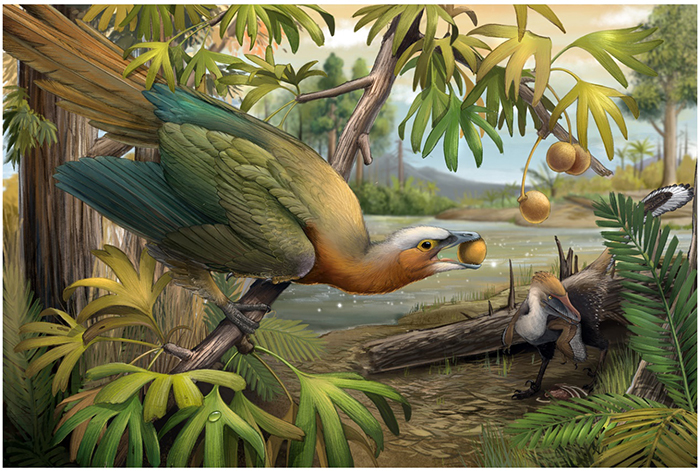| Location: Home > News > Events |
| Xinhua:Diet evolution may have helped birds survive Cretaceous mass extinction |
|
BEIJING, April 28 (Xinhua) -- Chinese scientists have revealed that the evolution of diet may have helped birds survive the Cretaceous mass extinction of species, according to a study published online in the journal BMC Evolutionary Biology. In the Cretaceous mass extinction 65 million years ago, evergreen plants started to decline and died out in the darkness due to an asteroid collision and extensive volcanic activities, which further led to the extinction of plant-eating dinosaurs, and eventually became a complete disaster for all non-avian dinosaurs. How ancient birds, the lineage of dinosaurs, survived the extinction event, remains unsolved. A research team led by Li Zhiheng from the Institute of Vertebrate Paleontology and Paleoanthropology under the Chinese Academy of Sciences revealed that dietary differences between bird and non-avian dinosaurs might help to unveil the mystery. The researchers studied the detailed tooth microstructure of early Cretaceous birds and made a further comparison with their closest dinosaur relatives, finding that a particular dentin layer in carnivorous dinosaurs had been lost in the birds. The results provided evidence supporting the theory that ancient birds shifted their dietary preferences to avoid direct competition for food resources with carnivorous dinosaurs, which may have helped them survive the extinction event.
Fig. Ecological reconstruction of a seed eating bird (left) shared the same wood forest with a non-avian theropod dinosaur (right). The scenario shows early birds evolved different dietary preferences (herbivorous or omnivorous) than those of predators and avoided direct competition. (Image by IVPP) |
